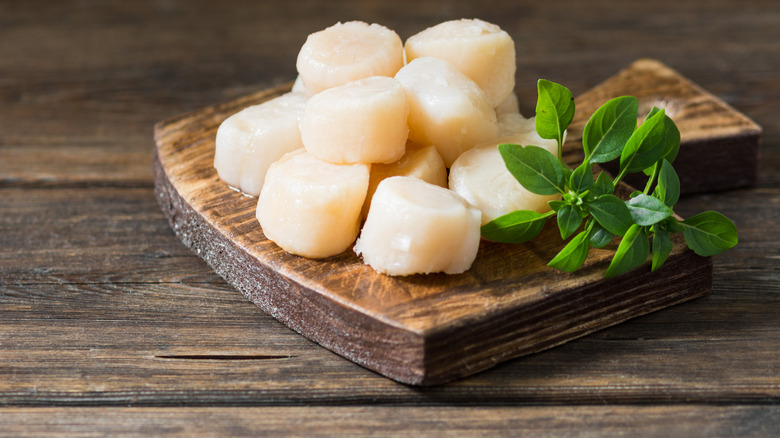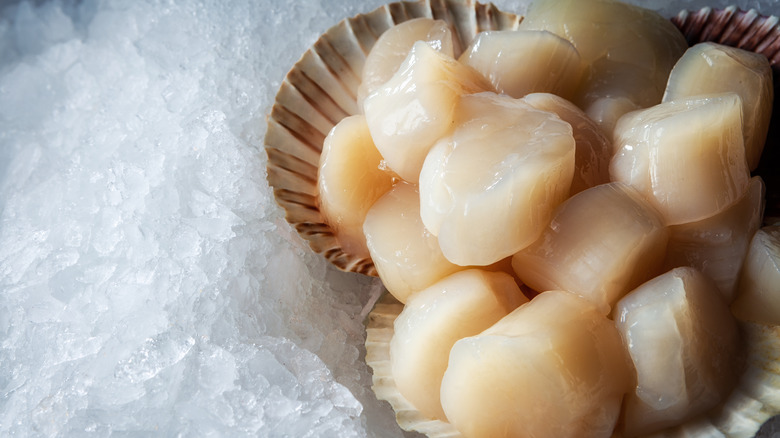The Real Difference Between Sea Scallops And Bay Scallops
There are arguably few varieties of seafood as simultaneously sumptuous and simple to prepare as the humble scallop. Its sweetness and tender texture require little dressing up to take it from the fridge or freezer to the table. Not even requiring a source of heat, scallop ceviche is a sophisticated yet incredibly efficient take on preparing the popular mollusk. However, easy appetizers like bacon-wrapped scallops are always a hit while a scallop pasta recipe can make nearly effortless weeknight dinners far from mundane.
According to WebMD, scallops are rich with antioxidants and boast a low level of fat while packing a protein punch at around 17 grams per serving. Additionally, the amino acids taurine and glycine that can help protect against obesity are found in scallops, helping with weight management. Meanwhile, scallops' magnesium may help with improving muscle strength or recovery after a workout. If your brain is what you're looking to feed, scallops are there for that, too — the generous amounts of B12, omega-3 fatty acids, and zinc in just one serving can help to boost cognitive function and potentially prevent diseases like Alzheimer's (via Healthline).
However, when searching out scallops to serve for supper or at your next soirée, it's important to note the type to buy.
Bay scallops versus sea scallops
The most noticeable difference between bay scallops and sea scallops is their size. MasterClass likens bay scallops' size to pieces of popcorn while suggesting that sea scallops are more in line with large marshmallows in their measurements.
In terms of texture and flavor, the two scallop varieties differ as well. While bay scallops are smaller than sea scallops, according to MarthaStewart, they tend to be both sweeter and more tender. MasterClass notes that sea scallops are often saltier and thicker.
If you're looking to make a meal in which the scallops are going to shine on the center stage of your dish, like this scallops and cheese grits recipe, sea scallops would be the best bet. According to My Live Lobster, bay scallops are more suitable for the likes of soups and stews, given their tendency to remain tender.
Regardless of which type of scallop you choose to use, always make sure to choose wisely between wet and dry packed scallops, and consider taking one of the simplest of prepping steps to achieve the most successful seared scallops.

